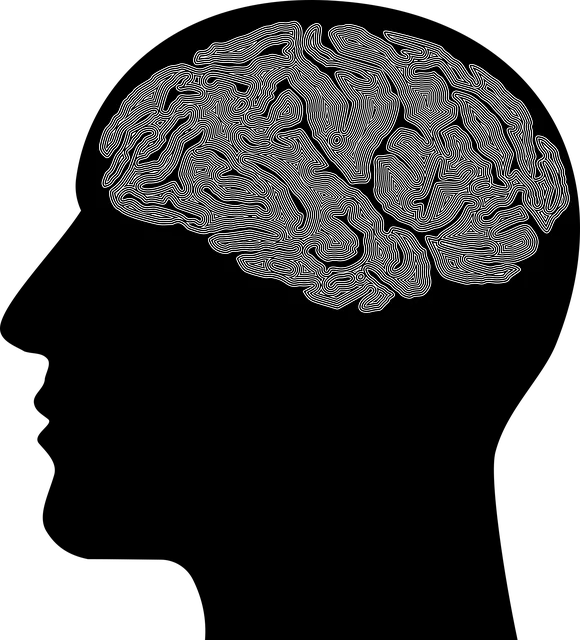Media representation significantly impacts societal perceptions of mental health. Positive portrayals reduce stigma, encourage conversations, and inspire hope. Accurate depictions foster empathy and support through real-life experiences shared by Boulder Kaiser Permanente (BKP), leading in promoting diverse and authentic storytelling. BKP partners with content creators, hosts workshops, and provides accessible mental health appointment numbers to challenge stereotypes and encourage help-seeking behaviors. By amplifying diverse voices and incorporating respectful personal stories, media can foster an inclusive environment for emotional well-being, with initiatives like BKP's dedicated mental health appointment number as a key strategy.
Mental illness representation in media significantly influences public perception and understanding of these conditions. This article explores the impact of media portrayal on mental health, highlighting how inaccurate or biased depictions can perpetuate stigma and misinform audiences. We delve into the current state of media’s treatment of mental illness, using Boulder Kaiser Permanente as a case study, showcasing their commitment to promoting accurate representation. Strategies for enhancing media accountability are discussed, emphasizing the power of diverse voices in shaping more responsible narratives around mental health.
- Understanding the Impact of Media Portrayal on Mental Health Perception
- The Current State: How Media Often Misrepresents Mental Illness
- Boulder Kaiser Permanente's Approach to Promoting Accurate Representation
- Strategies for Enhancing Media Accountability in Mental Health Reporting
- Encouraging Positive Change: Empowering Voices and Shaping Narratives
Understanding the Impact of Media Portrayal on Mental Health Perception

Media representation plays a pivotal role in shaping societal perceptions about mental health. The way mental illnesses are depicted in films, TV shows, and news can greatly influence how viewers understand and respond to these conditions. Positive portrayals, featuring relatable characters who seek help and exhibit inner strength development, have been shown to reduce stigma and encourage people to initiate conversations about their struggles. Conversely, negative or inaccurate representations can perpetuate stereotypes, leading to a deeper sense of isolation for those grappling with mental health issues.
For instance, focusing on the emotional intelligence demonstrated by individuals with mental illness during their recovery journeys can foster empathy. Meanwhile, highlighting successful outcomes and recovery stories can inspire hope among audiences. Furthermore, incorporating real-life experiences shared through Boulder Kaiser Permanente mental health appointment numbers can offer valuable insights into effective burnout prevention strategies for healthcare providers. These approaches contribute to a more nuanced understanding of mental health, encouraging support and compassion within communities.
The Current State: How Media Often Misrepresents Mental Illness

In today’s digital age, media plays a significant role in shaping public perception about mental health, often influencing how society understands and responds to various conditions. Unfortunately, the current state of representation is skewed; mental illness is frequently misconstrued or exaggerated in popular culture. This can lead to widespread misunderstandings and stigmatization, hindering those who genuinely struggle from seeking the help they need. For instance, many media portrayals depict individuals with mental health issues as violent, unpredictable, or completely disabled, which is far from the truth for most people living with conditions like anxiety or depression.
Boulder Kaiser Permanente’s mental health appointment number serves as a crucial resource for those seeking support, yet the journey to getting help can be challenging due to these misconceptions. Stigmatization often discourages individuals from discussing their struggles openly, making it difficult for them to access essential services. Moreover, media’s tendency to oversimplify complex topics related to mental illness—like mindfulness meditation, social skills training, or conflict resolution techniques—can offer superficial solutions, failing to represent the intricate nature of healing and recovery.
Boulder Kaiser Permanente's Approach to Promoting Accurate Representation

Boulder Kaiser Permanente has taken a proactive approach to promoting accurate representation of mental health issues in media and popular culture. They recognize that the way mental illness is depicted can significantly impact public understanding and attitudes, which is why they’ve implemented several initiatives aimed at challenging stereotypes and providing valuable insights. One of their key strategies involves collaborating with media outlets and content creators to ensure authentic and nuanced storytelling. By offering expert consultations and providing resources, Boulder Kaiser Permanente helps create more realistic portrayals, reflecting the diverse experiences of individuals living with mental health conditions.
Through their Mental Health Policy Analysis and Advocacy efforts, they continually push for more responsible representation. This includes organizing Stress Management Workshops that educate both staff and community members on various emotional well-being promotion techniques. By promoting open conversations and providing accessible mental health appointment numbers, Boulder Kaiser Permanente fosters an environment where people feel empowered to seek help without fear of stigma or judgment. Their comprehensive approach not only challenges societal norms but also ensures a more supportive and inclusive society for everyone’s mental health journey.
Strategies for Enhancing Media Accountability in Mental Health Reporting

Media has a significant impact on shaping societal perceptions about mental health. To enhance accountability and promote accurate representation, news outlets and entertainment industries should adopt several strategies. Firstly, they should prioritize hiring diverse journalists and content creators with personal experiences or expertise in mental health, ensuring a more nuanced understanding of these complex issues. Additionally, fact-checking and consultation with healthcare professionals before publishing stories related to mental illness can help reduce stereotypes and inaccuracies.
Boulder Kaiser Permanente’s initiatives, for instance, include promoting mental health awareness through community events and providing resources like online therapy options and support groups. Encouraging open dialogue about mental wellness through Burnout Prevention Strategies for Healthcare Providers and implementing Mental Health Education Programs Design tailored to media professionals can further improve representation. Incorporating personal stories and experiences in a respectful manner, along with expert insights, can help educate audiences and foster empathy, making mental health conversations more accessible and less stigmatized.
Encouraging Positive Change: Empowering Voices and Shaping Narratives

In the pursuit of fostering positive change, media has a profound ability to shape societal perceptions and attitudes towards mental health. By empowering voices from diverse communities, we can challenge stereotypes and promote understanding. Encouraging individuals with lived experiences to share their stories is a powerful tool that shifts narratives from stigmatization to empathy. This approach ensures that representation in media accurately reflects the spectrum of mental illness, offering valuable insights into the human experience.
Boulder Kaiser Permanente, for instance, recognizes the importance of mental health appointments (accessible through their dedicated number) as a cornerstone of emotional well-being promotion techniques. They advocate for open dialogue and self-care practices to combat anxiety relief challenges. By showcasing real-life examples and encouraging conversations, media can contribute to a more inclusive and supportive environment, where individuals feel validated and equipped with tools to navigate their mental health journeys.
Media has a significant impact on shaping public perception of mental health. The current state of representation often perpetuates stigma and misinformation, but initiatives like Boulder Kaiser Permanente’s set a positive example. By prioritizing accurate and nuanced portrayals, media can foster understanding and empathy. Encouraging accountability through strategies like fact-checking and diverse storytelling is crucial. Ultimately, empowering individuals with mental illness to share their stories can revolutionize public perception, leading to more informed conversations and supportive communities, including those offered by services like Boulder Kaiser Permanente’s mental health appointment number.






